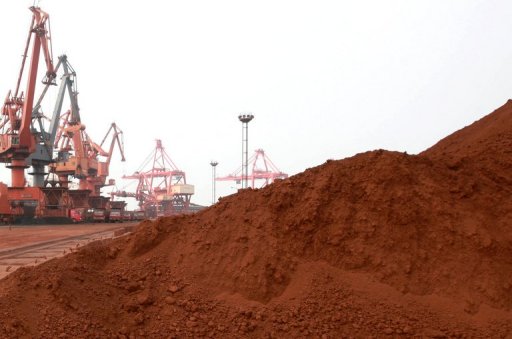This week those of us who have been in the rare earths business since Deng Xiaoping first opened China to market economies have experienced more change than in the past 20 years. As many are now aware, China presently produces nearly all the world’s rare earth metals and is using them to control production on the vast number of high technology products that can’t be made without rare earths.
First, last Friday the sole operating U.S. rare earth mine, Molycorp, announced it had acquired Neo Materials Technology, the patent holder of the process to produce rare earth magnet alloy. The material, Neodymium-Iron-Boron, is possibly the most critical use of rare earths, essential to making everything from modern electric motors to audio speakers to AppleTM earplugs to wind turbines and many, many other products. The unique aspect of the deal is that Neo’s operations are primarily in China. The upshot is that now that America finally has a domestic rare earth mine, at least a portion of the production will actually be shipped to China.
Then, yesterday, President Barack Obama announced that he is finally bringing an action against China for using its rare earth monopoly to overcharge non-Chinese companies for the material in violation of WTO requirements through illegal export taxes and quotas. The action was filed at the WTO in Geneva on Monday.
Each of these events will, in fact, play a major role in forcing China to establish an even playing field for rare earths, with prices inside of China hopefully soon matching prices paid in the U.S. and Europe. But this result will occur in ways most don’t fully appreciate. For example, the Molycorp deal has met with great resistance. What is a U.S. mine doing shipping our rare earths to China, when the key value of the mine is to provide America with some degree of independence? How can that be anything but bad news? On the WTO action, who in their right mind thinks the WTO will do anything when it essentially has no real appetite for enforcement of its own decisions?
However, both events are actually good news for the long term interests of the U.S.
As to the Molycorp deal, since the legitimate concern today is the potential differential between domestic Chinese prices versus prices its exporters charge globally, giving a possible unfair advantage to Chinese manufacturers, having Molycorp in China is a good thing. And given that Molycorp, as a U.S. public company, can be counted on to respect WTO and U.S. trade laws, the acquisition should, in fact, have the effect of encouraging equalization of Chinese export and Chinese domestic rare earth prices.
Infusing a publicly traded U.S. rare earth mining company directly into the Chinese supply chain will greatly contribute to open, transparent trade and therefore market based pricing. And since the Molycorp mine can easily meet current U.S. demand for rare earths, because we’ve basically outsourced all our high tech manufacturing, in at least the short term all our needs will also be met. Once America does increase rare earth demand, a market based company like Molycorp will go where the demand is. That’s the American way!
As to the WTO action, while it will presumably result in little to no action by the body, the filing alone brings critical issues to the fore that the Chinese are trying to avoid. Sufficient global resistance to monopolistic pricing by China will impact its ability to trade with nations whose own domestic manufacturing is suffering in part due to this price differential.
When President George W. Bush first went to China he tried to engage the Premier in a conversation on nuclear proliferation by asking the somewhat Reaganesque question, “Premier, what keeps you up late at night?”. To his surprise, the answer was: “How am I going to find 25 million jobs.”
It is this concern that has driven Chinese thinking ever since. Yesterday’s action against China at a minimum shows the Chinese that America is now on the same page.
If America is ever going to get back in the game of invention and manufacturing similar to the beginning of the last century (think Ford, Edison, Bell) we must get our rare earths act together.
These two events will nudge us further toward that goal.

COMMENTS
Please let us know if you're having issues with commenting.